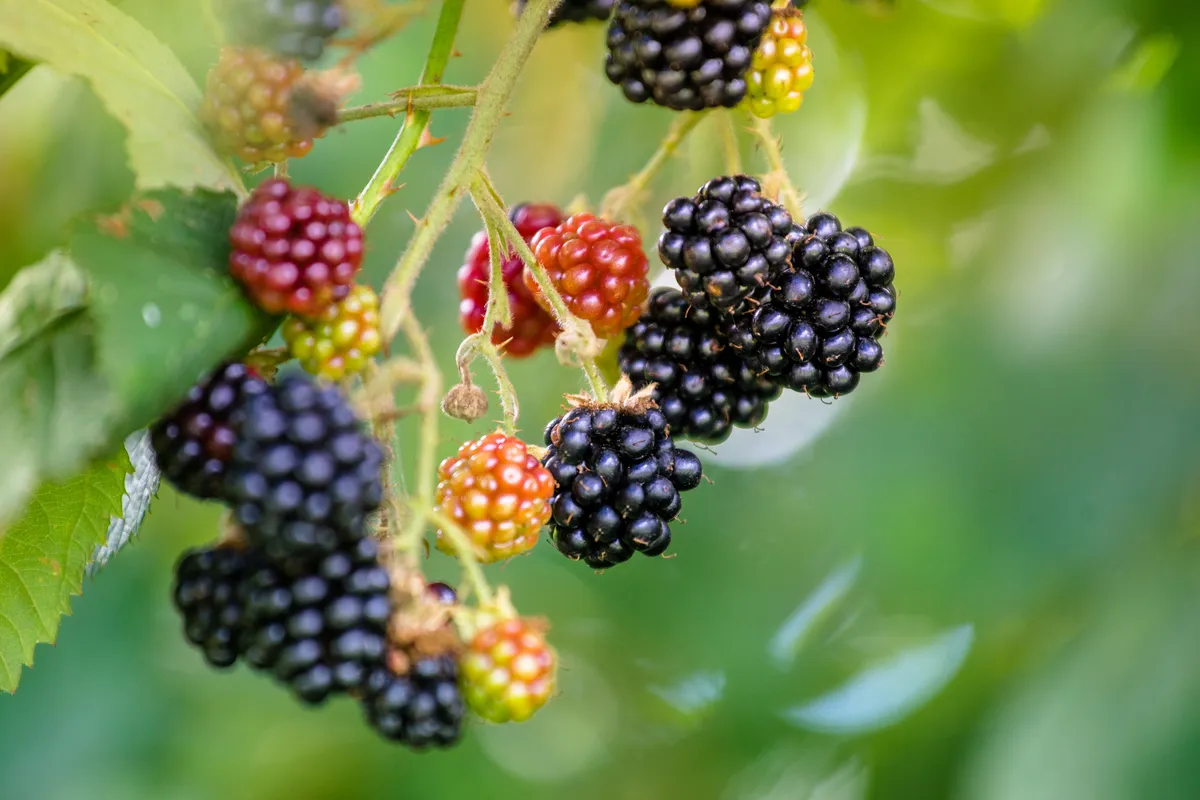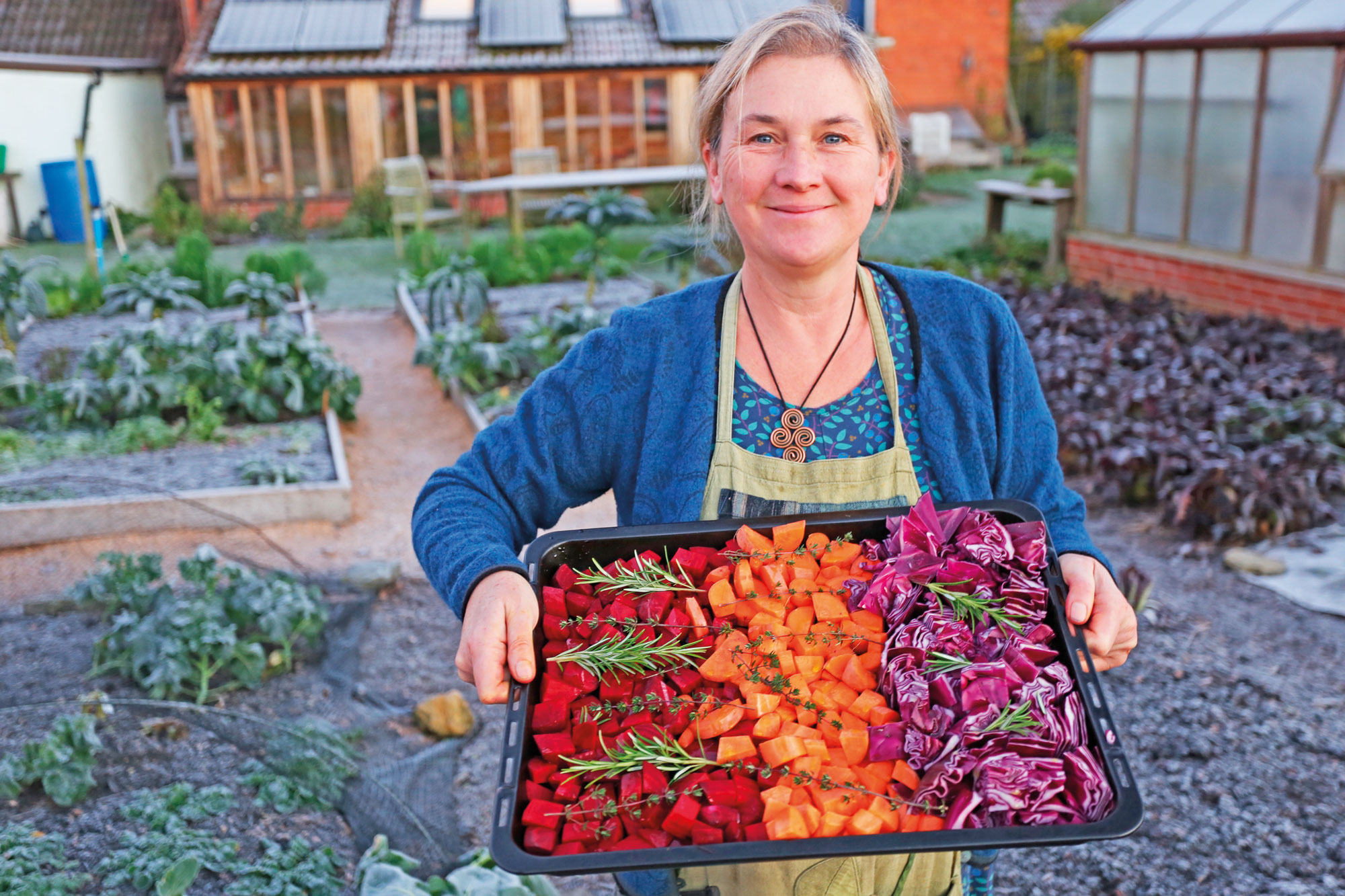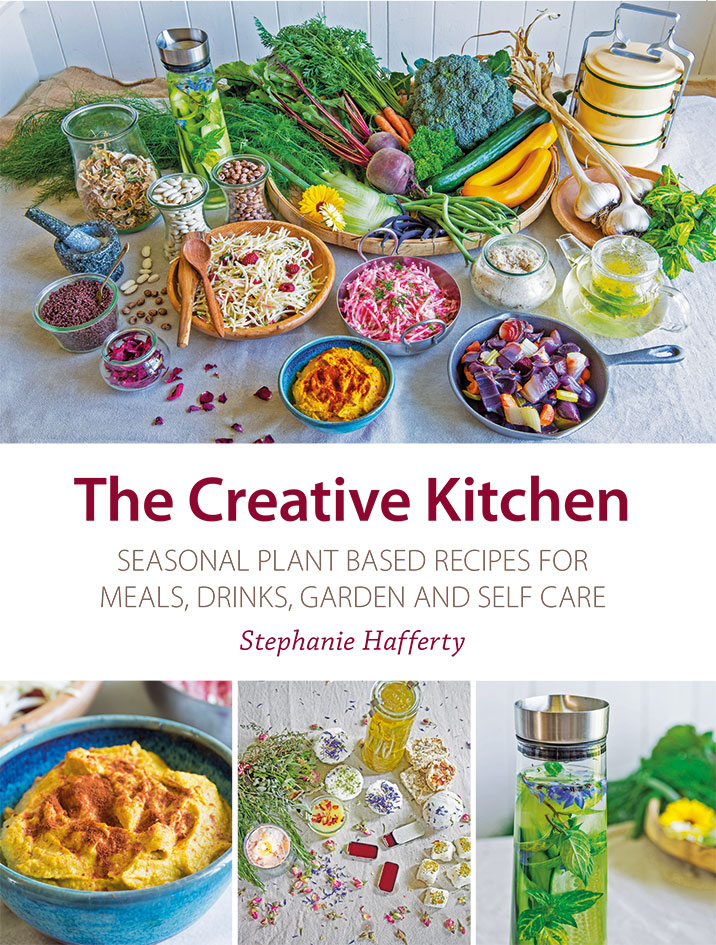Rich, sweet and fruity, this fruit balsamic vinegar is delicious as a cordial and makes a fabulous glaze for roasted vegetables. It’s a great way of quickly preserving summer and autumn fruit gluts, whether from your garden or allotment, or from foraging in the wider countryside.
More recipes using foraged berries:
Replace the balsamic with red or white wine or cider vinegar, as you wish.
As well as the ingredients listed below, you will need a large glass jar with a noncorrosive lid, and bottles or jars for storing with noncorrosive lids.
How to identify wild fruits

Autumn is a bountiful time of fruits, when trees and bushes seem to be dripping with beautiful berries – great for both wildlife and keen foragers.
Some of these berries are safe for humans to eat, although a few (such as elderberries) do need to be cooked first. Care must be taken as there are some safe fruits which can be easily mixed up with poisonous ones. If in doubt of plant identification, do not forage.
Learn about identifying wild fruits (both edible and poisonous) in our illustrated guide.
 This is a recipe from The Creative Kitchen, published by Permaculture, £19.95.
This is a recipe from The Creative Kitchen, published by Permaculture, £19.95.

